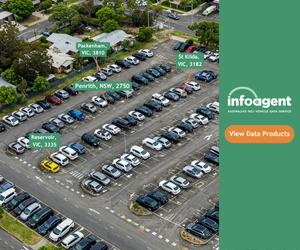This article was first published on Automotive Fleet and was written by its Associate PublisheAssr, Chris Brown
Did generative AI write this editorial? You’d probably be able to tell. Why? Because we’ve begun to understand what was written by a human and what was written by AI.
Dwell on that for a second — in just two short years we’ve become skilled at understanding which emails, articles, and college essays were written by a non-human. In 10 years from now, it won’t be that easy.
I’m looking forward to AI’s transformation of business and society in positive ways, but I’m also concerned. The really smart people are worried about AI and data privacy, algorithmic bias, and cybersecurity issues. Me too. Machine consciousness and robots taking over? We’ll leave that for the movies.
My worry is that AI will amplify our already urgent push for productivity and efficiency to an untenable degree, and how this will affect society, the workforce, and those in fleet management.
Whatever drudgery exists in a fleet manager’s workload will supposedly be handled by AI. And those 10 or so systems you manage every day? Theoretically, they’ll all talk to each other using AI, allowing you to strategise on “bigger things.”
But the first use cases aren’t those bigger things. AI is already being used to attack traditional tasks such as optimising replacement cycles, honing maintenance schedules, improving supply chains, and cataloging driver behaviours with much greater speed.
Improving the speed to complete these tasks is a welcome benefit. But while you will process less paperwork, you won’t be able to put your feet on your desk. In many circumstances, you’ll be asked to manage more.
In most businesses, human labor is the biggest cost. With available AI, payroll will be increasingly viewed as bloat. If you manage 100 units today, get ready to manage 500 or even 1,000 units with the same staff — and an AI bot assistant.
This is all theoretically possible, but AI needs to be trained with accurate, standardised, unbiased, and complete data. Any great improvement in speed requires greater accuracy. Today’s generative AI systems are hitting 80% to 90% accuracy, but the journey to 99% will be a long, slow crawl.
If you’re not involved in training the system or are removed from the initial inputs by chain of command or by time, any fault or miscalculation will magnify any problem that arises by the power of 10.
Form Your AI Fleet Strategy
Whether you’re dabbling in generative AI yet or not, your imperative right now is to get educated. AI won’t do things for you unless you understand thoroughly how to use and harness it.
Form an AI fleet strategy. Be part of your organisation’s conversation about AI implementation. Be prepared to answer questions on what is practically possible and what isn’t. And be prepared to manage that 10% to 20% inaccuracy. When AI presents an answer (and is so sure of itself!) will you be able to challenge the results?
The conversations around “fleet manager as data manager” have been ongoing for a while. Embrace the paradigm, because it’s about to kick into high gear.
Some fleet managers are already using generative AI as a research tool to compare internal policies with the outside world and hone best practices. They’re also getting results with simple prompts such as “Show me top 10 drivers by fuel spend,” and “Send me an Excel file with the bottom 20 locations for PM compliance.”
Right now, AI is the dumbest it will ever be. AI will get more sophisticated — meaning our methods to train the AI bots must become even more sophisticated too.
It’s time to jump in the stream. Sign up with ChatGPT or a competitor. Ask it questions. Engage in its conversational nature. View the response and ask more questions to see what query path gets you closer to what you want.
Brace yourselves. It won’t happen overnight, but it’s happening faster than any of us could’ve imagined. Are you ready to name your AI bot, your administrative assistant and life coach?
I’m going to call mine Gary.
Did you find this article interesting? Click the ‘heart’ button above to give it a ‘like’!



















